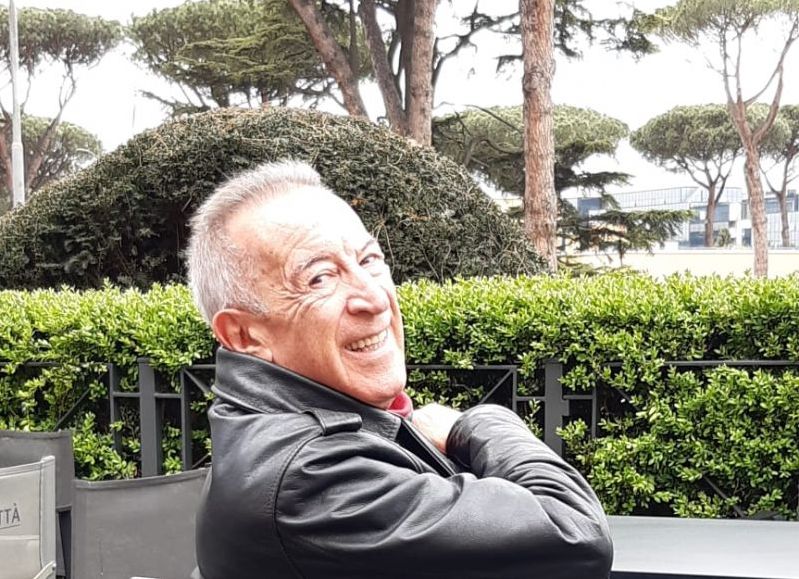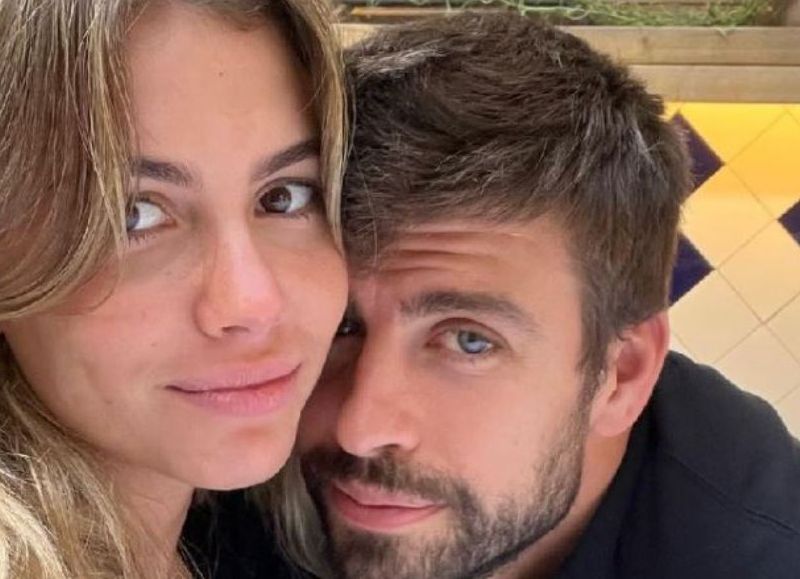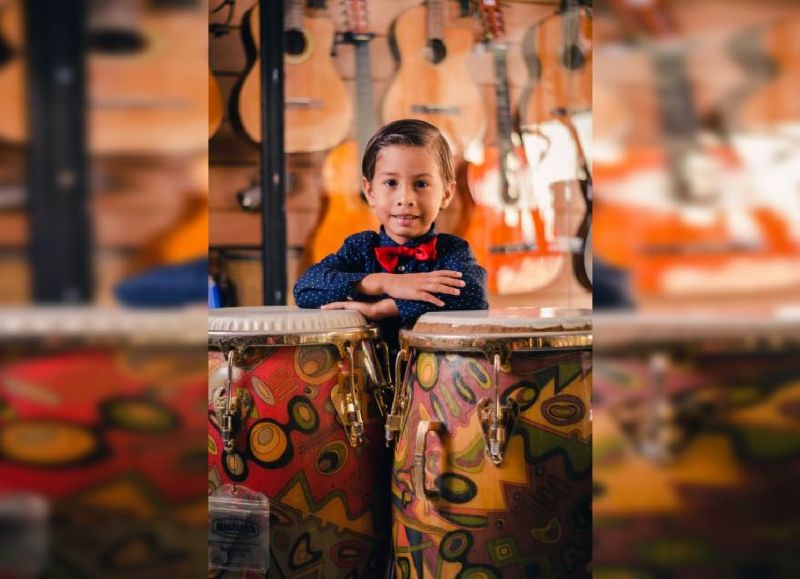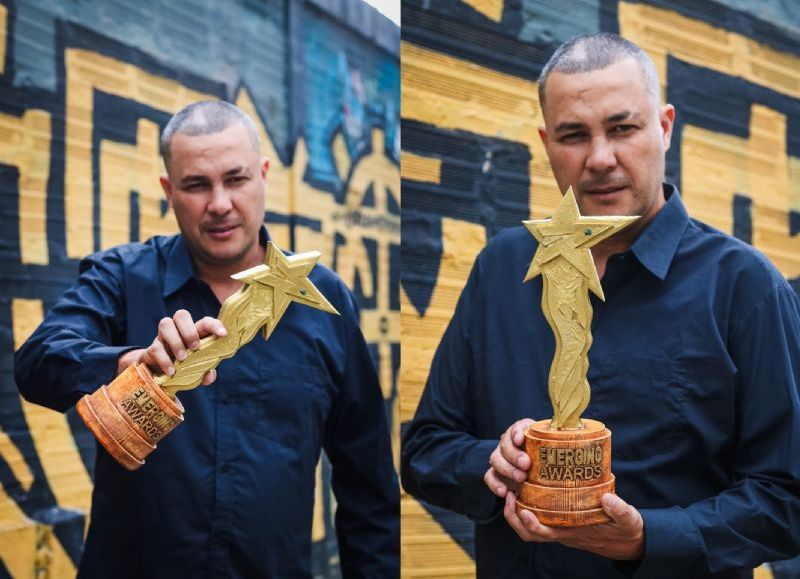Reportaje a Jhosemaria De Niro: "Cuando me propusieron cantar en inglés tuve dudas de hacerlo correctamente"

Por Noël Gibelli, especial para NOVA
Jhosemaria De Niro, descansa y trabaja a la vez, por eso, siempre está de buen humor, viajando por el mundo y llevando a todas las latitudes su música.
N.Gibelli: -¿Qué significa para ti la palabra fin?
-De Niro: ¡Que buena y terrible pregunta Noël!
Con esa palabra lo que se plantea es la cuestión del “tiempo” y su carácter lineal, la representación convencional que tenemos del pasado, presente y futuro con un origen y un fin.
Hay puntos opuestos que van juntos: origen-fin, causas - efectos, sujeto - objeto. Son cosas antinómicas que marchan juntas y nos dan seguridad.
Pero de aquí en adelante nosotros somos una forma de proceso ilimitado donde el fin ya no es identificable.
El fin es también la finalidad de alguna cosa que le da “significado” o “comprensión”.
Con respecto a mi actividad de cantante, creo que estoy en un camino que va más allá de lo verdadero o falso, del bien o del mal sin posibilidad de dar marcha hacia atrás.
Hay un punto irreversible a partir del cual las cosas que hice no hallarán su verdadero final, porque todo quedará grabado. Podrá ser rescatado, valorado, despreciado u olvidado. Pero no habrá fin desde la mirada filosófica.
La cuenta atrás que percibimos en muchos aspectos de la vida (historia, filosofía, etcétera) es un proceso interminable que niega la existencia de un fin. Todo se renueva o cambia en apariencia.
N.Gibelli: -¿ Qué puedes decirnos de tus itinerarios musicales?
Comenzaste cantando folklore argentino, tangos y luego baladas románticas. ¿Qué es la dualidad?
De Niro: -También canté en francés desde niño paseando por el repertorio de Edith Piaf, Charles Aznavour, Jacques Brel, Bárbara, Charles Trenet, etc.
Esos mundos paralelos en los que he vivido son la consecuencia de una realidad que se disociaba porque trataba de unificarla, homogeneizarla demasiado. La dualidad ( o reversibilidad) es una forma aplicada para encontrar un orden de las cosas que forman mi cosmogonía y mi sensibilidad.
N.Gibelli: -¿Qué descubriste cantando en inglés?
De Niro: -Que a todo lo anterior le faltaba algo que estaba latiendo muy silenciosamente en el fondo de mi alma.
Cuando era un niño caminaba por las calles cantando en un idioma inexistente que imitaba al Inglés con sonido onomatopéyicos ( Yes…Ayyyy du ayyy Ruey ruey etc ( risas).Además me anunciaba como la haría un presentador diciendo : “ ¡Ahora con Ustedes el cantante Cachito! pues era mi apodo.
En mi adolescencia y siendo bilingüe franco-español jamás quise aprender inglés. No me interesaba, aunque devoraba las grabaciones de Frank Sinatra y otros crooners.
Cuando me propusieron cantar en inglés tuve dudas de hacerlo correctamente. Mis primeras grabaciones no son buenas y mi inglés es duro. Luego aprendí que, como en todos los idiomas, hay un lenguaje coloquial y otro literario. En inglés hay mucho más que eso.
Me instalé en New York pero traté de cantar “British” pues Sinatra y otros de su tiempo lo hacían. Luego escuché hablar a políticos que siempre tratan de hacerse entender por todos. Fui descubriendo mi “propia manera” de pronunciar el inglés que es un idioma muy ambiguo para quienes hablamos lenguas latinas.
Una vez, cuando yo grababa en francés, trataba de pronunciar como Jacques Brel. Y alguien me dijo “Brel pronuncia como Brel”.
Ahora dicen mis críticos y otra gente que me escucha que “Jhosemaria pronuncia como Jhosemaria y bastante British”. El inglés es hablado por millones de seres humanos y presenta enormes diferencias de pronunciación en todo el mundo. Eso sí: a los rockeros no les entiendo nada como tampoco les comprendo a los de mis idiomas nativos (francés y español).
N.Gibelli: -Volviendo a lo del concepto fin ¿no crees que desapareciendo de los escenarios, de algún modo le pones fin a una parte de tu carrera?
De Niro: -En primer lugar, algún que otro concierto voy a dar. Estoy pensando en ello.
Pero es cierto que, en general le pongo fin a una parte de mi carrera.
Digo siempre y hay que repetirlo: mucha gente acaba de descubrirme sin saber que, hace 40 años que ando por el mundo.
De la misma manera que en el cine se puede mostrar un filme a millones que nunca lo vieron, en la canción se puede escuchar a alguien a través de grabaciones por parte de aquéllos que jamás lo escucharon antes.
Además, los tiempos han cambiado. A excepción de la ópera, los espectáculos son una especie de conglomerados masivos donde no siempre se aprecia la calidad de quien actúa. Las masas necesitan protagonismo. Saltan, gritan, corean canciones muy promocionadas y quien está arriba del escenario es casi un holograma. Los artistas necesitan hacer conciertos para ganarse la vida. No se dan cuenta que, a veces, el público los utiliza como elementos catárticos para proyectar deseos. Aunque suene jactancioso ya no necesito cantar para ganar dinero.
Mi vida se ha convertido en un hermoso valle donde disfruto la bendición de crear, estudiar, tratar de mejorar, descubrir repertorio que me sorprenda y además escribir, que es algo que necesito hacer.
Otra cosa que sucede es que voy cumpliendo años y aunque soy de los afortunados que no aparentan su edad, los años los tengo y es mejor que quienes nunca me vieron personalmente me sigan por el sonido de mi voz. Mis conciertos siempre fueron al estilo de Café-Concert. No me veo en un Estadio de Fútbol cantando ASK ME WAY o a Shakespeare con música de Ennio Morricone. Me quedaría solo (risas).
N.Gibelli: -¿Cómo continuará éste año 2023 tu recorrido por el mundo?
De Niro: -Ahora acabo de llegar a Las Islas Canarias que son mi remanso. Traje un conjunto de partituras y grabaciones de pistas ya realizadas para ensayar y aprender nuevas canciones.
Luego, a mediados de abril partiré a Paris donde tengo una casa desde siempre, veré llegar la primavera en mi querido Jardín y supervisaré las obras de un estudio de grabación que estamos construyendo.
Avanzado Mayo, espero ya poder grabar en Roma, Munich y Praga todo lo programado desde el 2022.
Deseo volver a Buenos Aires donde también tengo afectos y una casa que adoro. En todas éstas ciudades me dedico a trabajar intensamente que es la razón de mi vida.
N.Gibelli:-¿Qué piensas o sientes respecto del Amor ?
De Niro: -Lo que siempre digo; el amor es eterno y es la esencia de la vida. El amor no muere pero cambia y muchas veces regresa del dolor sin ser igual.
En mi caso estoy viviendo una segunda adolescencia. La primera no fue mala pues no sufrí lo que es normal padecer. Fue bella y creativa.
Y ahora, en el crepúsculo de mi tiempo estoy llegando a una verdadera paz sin tener que recurrir a ninguna religión, aunque respeto las creencias y necesidades de mis semejantes. Como decimos en francés, “cada cual ve el mediodía en su puerta”.
N.Gibelli: -¿Qué esperas de tus seguidores?
De Niro: -Les deseo que encuentren en mis canciones paz y aquéllos valores estéticos que están en crisis en ésta convulsionada y violenta época.
No puedo gustar a todos. Nadie lo consigue.
Sigo arrojando al mar aquélla botella con mensaje e náufrago para que alguien la encuentre después de mi breve paso por la vida.
N.Gibelli: -What does the word END mean to you ?
De Niro: What a good and terrible question Noël!
With this word what is raised is the question of "time" and its linear character, the conventional representation we have of past, present and future with an origin and an end.
There are opposites that go together: ORIGIN-END, CAUSES - EFFECTS, SUBJECT - OBJECT. They are antinomies that go together and give us SECURITY.
But from here on we are a form of unlimited process where the END is no longer identifiable.
The END is also the finality of some thing which gives it "meaning" or "understanding".
With regard to my activity as a singer, I believe that I am on a path that goes beyond true or false, good or evil with no possibility of turning back.
There is an irreversible point from which the things I have done will not find their true END, because everything will be recorded. It can be rescued, valued, despised or forgotten. But there will be no END from the philosophical point of view.
The countdown that we perceive in many aspects of life (history, philosophy, etc.) is an endless process that denies the existence of an END. Everything is renewed or changes in
appearance.
N.Gibelli: -What can you tell us about your musical itineraries?
You started singing Argentinian folklore, tangos and then romantic ballads. What is duality?
De Niro: -I also sang in French since I was a child, going through the repertoire of Edith Piaf, Charles Aznavour, Jacques Brel, Bárbara, Charles Trenet, etc.
These parallel worlds in which I have lived are the consequence of a reality that dissociated itself because it tried to unify it, to homogenise it too much. Duality (or reversibility) is a form applied to find an order of things that form my cosmogony and my sensibility.
N.Gibelli: -What did you discover singing in English?
De Niro: -That all of the above was missing something that was beating very quietly in the depths of my soul.
When I was a child I walked through the streets singing in a non-existent language that imitated English with onomatopoeic sounds ( Yes...Ayyyy du ayyy Ruey ruey ruey etc ( laughs) I also announced myself as a presenter would do it saying: "Now with you the singer CACHITO! because that was my nickname.
As a teenager and being bilingual French-Spanish I never wanted to learn English. I wasn't interested even though I devoured the recordings of Frank Sinatra and other crooners.
When I was asked to sing in English I had doubts to do it correctly. My first recordings are not good and my English is hard. Then I learned that, as in all languages, there is a colloquial and a literary language, and in English there is much more than that.
I settled in New York but I tried to sing "British" as Sinatra and others of his time did. Then I listened to politicians who always try to make themselves understood by everyone. I discovered my "own way" of pronouncing English which is a very ambiguous language for those of us who speak Latin languages.
Once, when I was recording in French, I tried to pronounce it like Jacques Brel. And someone told me "Brel pronounces like Brel".
Now my critics and other people who listen to me say that "Jhosemaria pronounces like Jhosemaria and quite a lot of Brithis", English is spoken by millions of human beings and there are huge differences in pronunciation all over the world. I don't understand rockers at all, just as I don't understand those of my native languages (French and Spanish).
N.Gibelli: -Going back to the END concept, don't you think that by disappearing from the stage, you somehow put an end to a part of your career?
De Niro: -First of all, I'm going to give one or two more concerts. I'm thinking about it.
But it's true that, in general, I'm putting an end to a part of my career.
I always say and I have to repeat it: Many people have just discovered me without knowing that I've been around the world for 40 years.
In the same way that in cinema you can show a film to millions who have never seen it, in song you can listen to someone through recordings by those who have never heard him before.
Moreover, times have changed. With the exception of opera, shows are a kind of mass conglomeration where the quality of the performer is not always appreciated. The masses need the limelight. They jump, they scream, they chant for highly promoted songs, and whoever is on stage is almost a hologram. Artists need to do concerts to make a living. They don't realise that sometimes the audience uses them as cathartic elements to project desires. As boastful as it sounds, I no longer need to sing to make money.
My life has become a beautiful valley where I enjoy the blessing of creating, studying, trying to improve, discovering repertoire that AMAZES me and also writing, which is something I need to do.
Another thing that happens is that I am getting older and although I am one of the lucky ones who don't look their age, I have the years and it is better that those who have never seen me personally follow me by the sound of my voice. My concerts were always Café-Concert style. I can't see myself in a football stadium singing ASK ME WAY or Shakespeare with music by Ennio Morricone. I would be on my own ( laughs)
N.Gibelli: -How will this year 2023 continue your world tour?
De Niro: -Now I have just arrived in the Canary Islands, which are my haven. I brought a set of scores and recordings of tracks already made to rehearse and learn new songs.
Then, in mid-April, I will leave for Paris where I have a permanent home, see the spring arrive in my beloved Jardin and supervise the work on a recording studio we are building.
By May, I hope to be able to record in Rome, Munich and Prague everything scheduled for 2022.
I wish to return to Buenos Aires where I also have affections and a house that I adore. In all these cities I dedicate myself to work intensely, which is the reason for my life.
N.Gibelli: -What do you think or feel about Love ?
De Niro:-What I always say; love is eternal and is the essence of life. Love DOES NOT DIE but it CHANGES and many times it comes back from pain without being the same.
In my case I am living a second adolescence. The first one was not bad because I did not suffer what is normal to suffer. It was beautiful and creative.
And now, in the twilight of my time, I am reaching a true peace without having to resort to any religion, although I respect the beliefs and needs of my fellow men. As we say in French, "everyone sees the noon at his door".
N.Gibelli: -What do you expect from your followers?
De Niro: -I hope they find in my songs peace and those aesthetic values that are in crisis in this troubled and violent era.
I can't please everyone. Nobody does.
I keep throwing that bottle with the castaway message into the sea so that someone will find it after my brief passage through life.










 Sigue todas las noticias de NOVA Ecuador en Google News
Sigue todas las noticias de NOVA Ecuador en Google News







